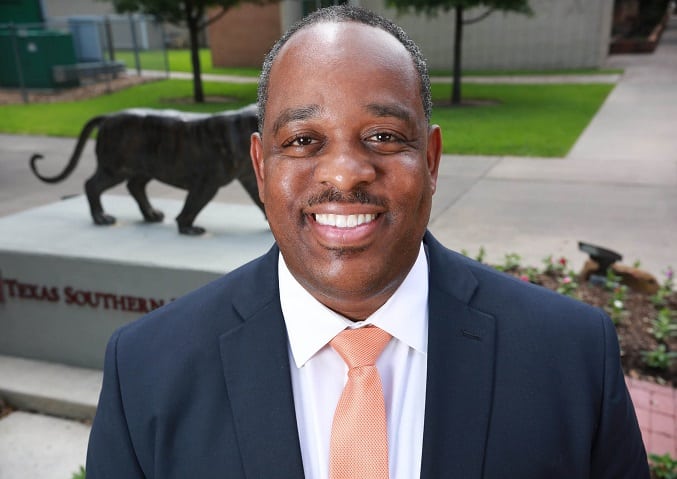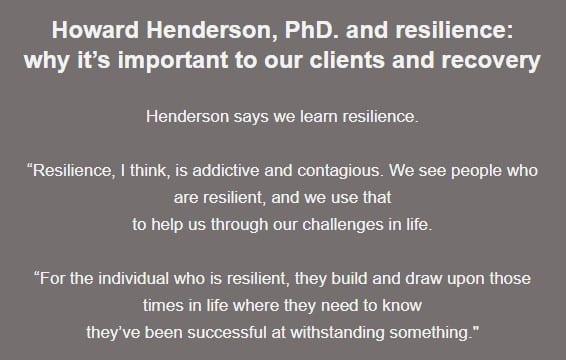How His Upbringing Shaped Interest in Criminal Justice
We are pleased to introduce Howard Henderson, PhD, new board member at Houston Recovery Center, in Position 10.
 Howard Henderson, PhD is a strong believer in sobering centers and describes them as critical.
Howard Henderson, PhD is a strong believer in sobering centers and describes them as critical.
“I don’t know if a community can survive without them,” Henderson says. “When you think of the sheer volume of cases that would go through a county jail if you weren’t around.”
Henderson says incarceration is not the answer. It’s not a criminal justice issue at all, he adds, and it never should have been placed in that realm.
Interest in Criminal Justice
Henderson’s desire to study criminal justice dates back to his childhood. Approaching adolescence in the late 1980s, Henderson witnessed family members — who were good people and wanted to achieve better things in life — get caught up in the War on Drugs. They would frequent juvenile detention and ultimately end up in prison. Many were never able to readjust.
“I’ve always had a passion to figure out better ways to deal with those who went in the wrong direction at a very early age,” Henderson relates.
Today, Henderson’s world is all-things criminal justice from his role as professor of justice administration in the Barbara Jordan-Mickey Leland School of Public Affairs at Texas Southern University to serving as founding director of the Center for Justice Research. He earned a Bachelor’s, Master’s, and PhD in Criminal Justice and is an expert on culturally responsive criminal justice research, program evaluation, and predictive bias.
Despite all his accolades and achievements, the highlight of Henderson’s career relates to his students.
“Being able to see my students go on to become university professors and do great work – that’s the highlight of my career,” Henderson says. “Helping them think differently about what the criminal justice system really should be.”
 Another highlight, he adds, is helping to start a research center (Center for Justice Research) that helps organizations, agencies, and institutions think about better ways to treat people who have been deemed delinquent or criminal in some fashion.
Another highlight, he adds, is helping to start a research center (Center for Justice Research) that helps organizations, agencies, and institutions think about better ways to treat people who have been deemed delinquent or criminal in some fashion.
“It’s more about focusing on treatment, alternatives to incarceration and helping people re-acclimate themselves to society,” Henderson says.
Offers Evidence-Based Perspective
Henderson crossed paths with Executive Director Leonard Kincaid when they both served on the Mayor’s Task Force on Policing Reform last fall. Henderson first learned of Houston Recovery Center two years ago when the Center for Justice Research was looking at alternatives to incarceration locally – identifying who was doing it well and how they were doing it.
“I’ve always been impressed at the volume of people you’ve been able to keep out of the county jail, but also provide an opportunity to be successful and deal with substance abuse,” Henderson relates.
As a former probation officer, Henderson says he understands the realities of substance use, the need for treatment over incarceration, and the need to bring resources together for people who often don’t realize they have a disease.
“Given that approach, combined with my academic understanding, I know there are better ways to do things,” Henderson relates. “Hopefully I’m able to shed a perspective on many of the issues (the board) deals with and provide evidence for supporting decisions that we are asked to make.”
In his personal time, Henderson likes to spend time talking with his wife and kids. And reading is one of his favorite pastimes, reading three to four books at a time.
“Amazon has killed my ability to read one book straight through,” Henderson laughs. “You know, someone refers you to a book and you can’t NOT get it. So thanks to Amazon, the book comes right to your house.”